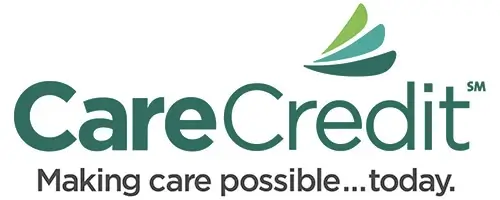Here at ICAM we are following recommended protocols put in place by the CDC.
Key Goals for the U.S. healthcare system in response to the COVID-19 outbreak are to:
- Reduce morbidity and mortality
- Minimize disease transmission
- Protect healthcare personnel
- Preserve healthcare system functioning
Steps we are taking to reduce risks are as follows:
- Limiting visitors to our facility. At this time only the patient can enter. Please don’t bring any children, friends or family with you to your appointment.
- Rescheduling non-urgent visits.
- Patients that have any respiratory symptoms are asked to stay home.
- We are screening patients for symptoms before entering our facility. Patients are asked to call us from their car when they arrive. One of our Medical Assistants will come and check their temperature and check for any symptoms.
- If you have recently been traveling you may be asked to wear a mask.
We do apologize for any inconvenience this may cause.
COVID-19, originally known as 2019-nCoV, is a strain of a large family of coronaviruses which can be transmitted from animals to humans. It was first identified as the cause of a respiratory illness outbreak in Wuhan, China in late 2019. On March 11, 2020 the World Health Organization (WHO) declared COVID-19 a pandemic.
COVID-19 symptoms are similar to the cold or flu, and may take up to 14 days to appear after exposure to the virus. People with fever, cough and difficulty breathing should seek medical attention. Be vigilant as severe cases may lead to pneumonia, kidney failure or death.
Mild symptoms may include:
- Fever
- Cough
- Shortness of Breath
- Sore Throat
- Runny Nose & Sneezing
- Muscle Aches & Pain
- Chills & Fatigue
- Impaired Liver & Kidney Function
Those at higher risk of getting very sick from COVID-19 include seniors, and people who have serious pre-existing medical conditions including:
- Cancer
- Diabetes
- Heart Disease
- High Blood Pressure
- Lung Disease
People at higher risk for serious illness and even death from COVID-19 should take extra precautions like:
- Avoiding Crowds
- Practicing Social Distancing
- Washing Hands Often
- Staying Away from Sick People
- If COVID-19 is nearby, STAY HOME
High risk people should contact their healthcare provider early, even if their illness is mild.
The most effective ways to protect yourself and others against COVID-19 are to frequently clean your hands, cover your cough with the bend of elbow or tissue, and maintain a distance of at least 3 feet from people who are coughing or sneezing.
The WHO and CDC advises the following prevention methods:
Wash Hands Frequently
Scrub hands with soap and water for at least 20 seconds for visibly dirty hands or an alcohol-based hand rub frequently for non-visibly dirty hands.
Practice Respiratory Hygiene
When coughing and sneezing, cover mouth and nose with flexed elbow or tissue – discard tissue immediately into a closed bin and clean your hands with alcohol-based hand rub or soap and water.
Maintain Social Distancing
Maintain at least 3 feet distance between yourself and other people, particularly those who are coughing, sneezing and have a fever. If you are too close, you can breathe in the virus.
Avoid Touching Eyes, Nose & Mouth
Hands touch many surfaces which can be contaminated with the virus. If you touch your eyes, nose or mouth with your contaminated hands, you can transfer the virus from the surface to yourself.
Clean & Disinfect
Clean and disinfect high-touch surfaces daily in household common areas such as: tables, hard-backed chairs, doorknobs, light switches, remotes, handles, desks, toilets, faucets, sinks.
Animal Proximity Precautions
Practice general hygiene measures when visiting farms, live animal markets, wet markets, animal product markets or contact with wild animals. Ensure regular hand washing with soap and potable water after touching animals and animal products.
Animal Consumption
Avoid eating raw or under-cooked animal products. Handle raw meat, milk or animal organs with care, to avoid cross-contamination with uncooked foods, as per good food safety practices.
Mild Symptoms
If you have mild respiratory symptoms and no travel to hard-hit areas, still seek medical care and be sure to carefully practice basic respiratory and hand hygiene and stay home until you are recovered.
Seek Medical Care Early
If you have fever, cough and difficulty breathing, seek medical care early and tell your healthcare provider if you have traveled to an area where the virus has been severely impacted, or if you have been in close contact with someone who has respiratory symptoms.
Testing
If you think you have been exposed to COVID-19 and develop symptoms such as fever, cough or difficulty breathing, call your healthcare provider for medical advice. They will decide whether you need to be tested.
People at higher risk for serious illness from COVID-19 should contact their healthcare provider early, even if their illness is mild.
Treatment
To date, there is no vaccine and no specific antiviral medicine to prevent or treat COVID-19. However, those affected should receive care to relieve symptoms. People with serious illness should be hospitalized. Most patients recover thanks to supportive care.
Possible vaccines and some specific drug treatments are under investigation. They are being tested through clinical trials. WHO is coordinating efforts to develop vaccines and medicines to prevent and treat COVID-19.
LAST UPDATED: March 16, 2020
For the most up-to-date information on possible vaccines, treatments, FAQs, news and more, please visit the following official health organizations:
Centers for Disease Control & Prevention (CDC)
www.CDC.gov
World Health Organization (WHO)
www.WHO.int
If you have questions or concerns, please call us at: 609-978-9002


